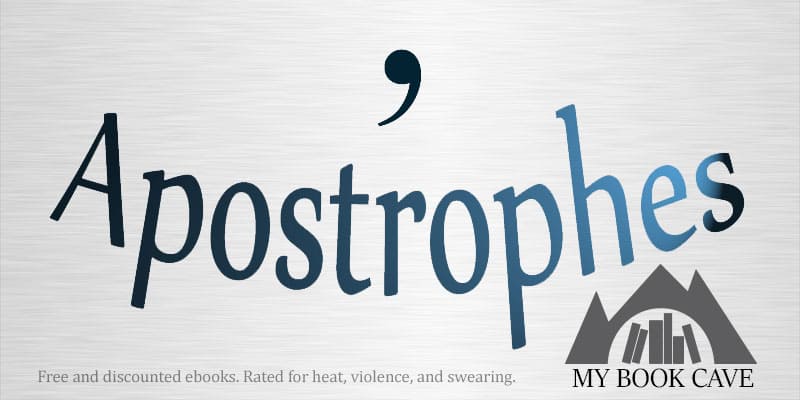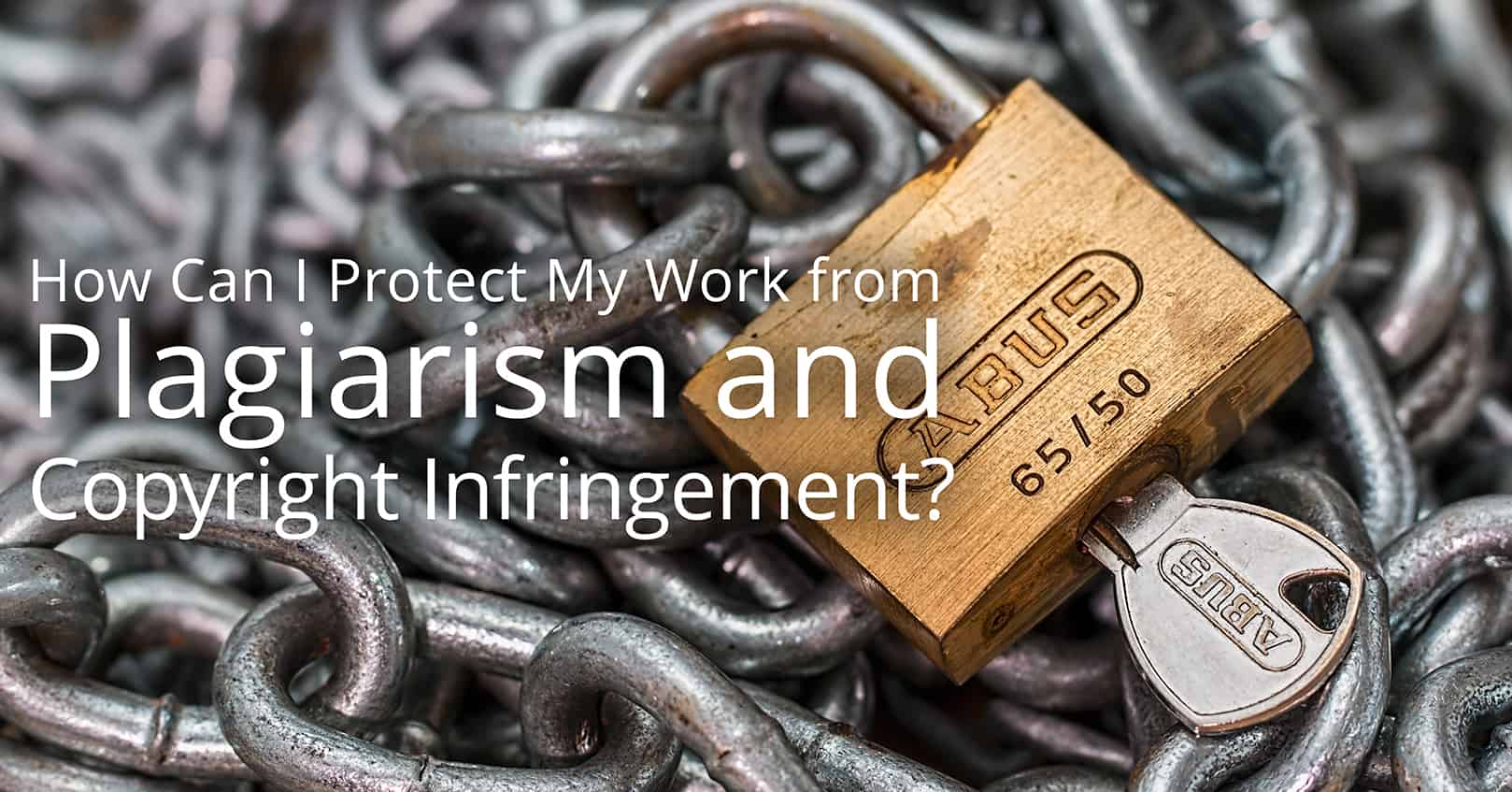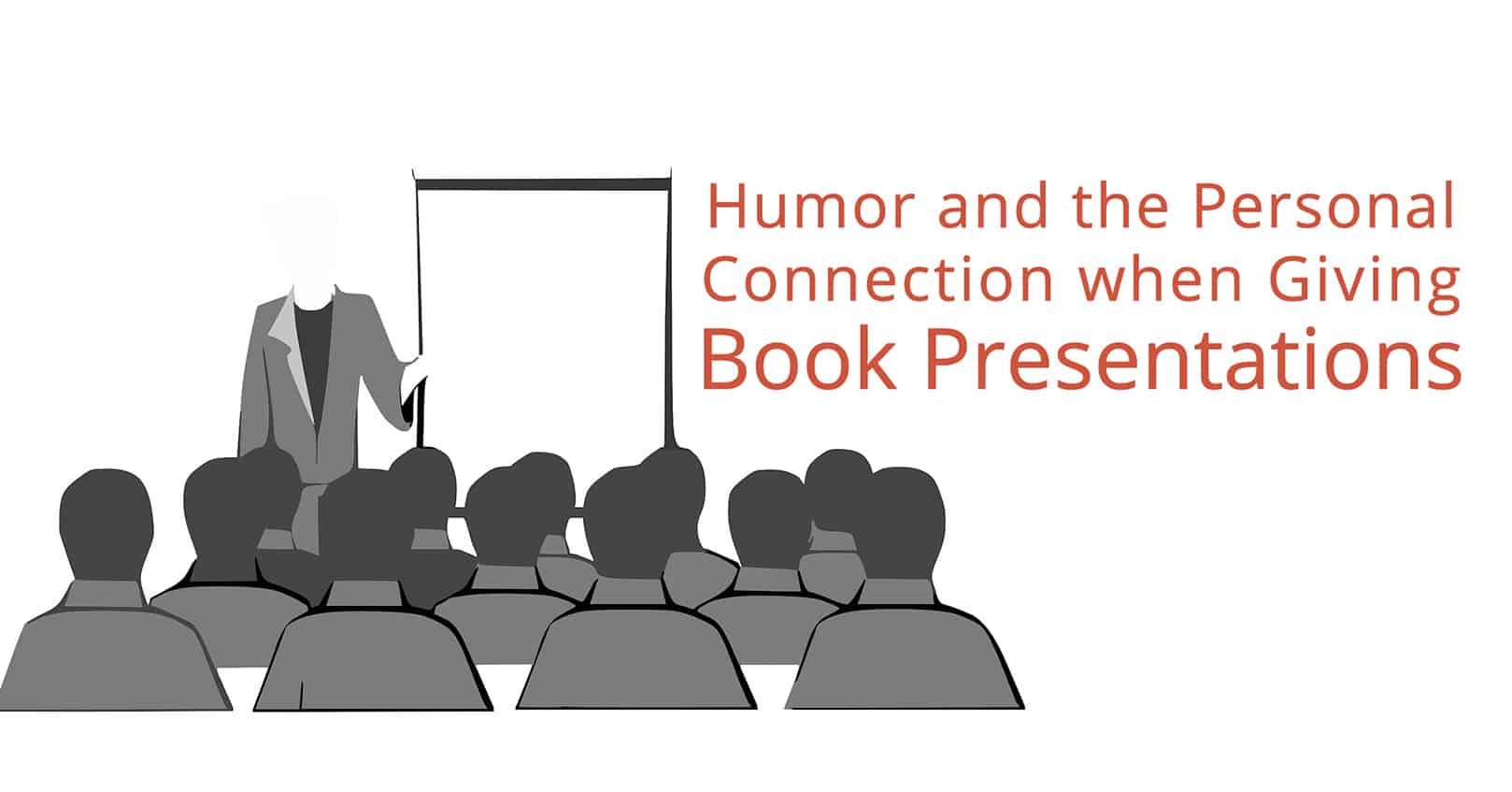
Today, we’ll be talking about apostrophes, when to use them with omitted letters and possessives, and which way they should face. A few simple rules will help you use apostrophes with confidence.
How to Use Apostrophes in Contractions
In contractions or partial words, the apostrophe takes the place of the missing letters.
they’re = they are
I’m = I am
It’s = it is
don’t = do not
wasn’t = was not
Unlike single quotation marks, apostrophes should always curve to the left.
Right:  = them
= them
Wrong:  = them
= them
Microsoft Word will always put in the apostrophe so that it curves toward the text, which, in the example above, would be the wrong way. The best way to fix these errors is to run a search and replace for words you know are in your book. For example, you could put ‘em into the Find box and ’em into the Replace box.
How to Use Apostrophes in Possessives
Apostrophes are also used in possessives. The basic rule is to add ’s, whether the noun is singular or plural.
Claire’s book
Nate’s book
The children’s book
One exception to adding ’s is with the word it. In this case, you do NOT include an apostrophe.
Right: Its book
Wrong: It’s book (this means “It is book” not that the book belong to “It.”)
When the noun ends in an s (and is singular), you still add an ’s.
For the name James:
Right: James’s book
Wrong: James’ book
The Chicago Manual of Style used to recommend omitting that extra “s” in the names of Biblical figures, such as Jesus and Moses, but it has since removed that exception for consistency’s sake. However, Merriam-Webster’s Dictionary, as well as several style guides, still recommends omitting the extra “s.”
Merriam-Webster: Jesus’ book.
Chicago: Jesus’s book.
For the word class:
Right: The class’s pet
Wrong: The class’ pet
When the noun ends in an s and is plural, you only add an apostrophe.
For the name Jones (the plural is Joneses, as in “The Joneses”):
Right: The Joneses’ place
Wrong: The Joneses’s place
For the word classes:
Right: The classes’ party
Wrong: The classes’s party
Apostrophes to Make Plurals
In general, apostrophes are not used to make plurals. One exception is when making single letters plural. (Note: other exceptions are when NOT using the apostrophe would make the sentence unclear.)
Right: Mind your p’s and q’s.
Wrong: Mind your ps and qs.
Right: There are two a’s in that word.
Wrong: There are two as in that word.
















Hi Catia, I have an unusual example – it is an apostrophe above a lower case letter ‘p’ in a latin transcription of an older text. Have you or anyone else ever seen this done? It can hardly be a typo (I think) as it is a typed copy of an old document (i.e. not handwritten.) Also it appears in a very respectable academic book (I will give a reference below if you want to check it out….if I could have attached an image here, I would have attached a copy of the letter…) Best regards, and thank you for your great page.
It appears on page 9, 17 lines down as ‘p’, in the following text: ” 151v) EBD.XXIIII . . . p oct pent…”
[https://archive.org/details/MN41395ucmf_4/page/n16/mode/1up?view=theater]
I am having a very difficult time finding an answer to the question – at the end of words like havin, where there is no g. should
the apostrophe face to the right, as I suspect it does. I do know that at the begining of words like avin, the apostrophe faces to the left.
Thanks for any help you can give me
In the case of my name being Lisa, and friends say Lis’ with the apostrophe at the end in place of the ‘a’ if writing to me. Is that correct usage of the apostrophe or should it be dropped if I want to use the nickname in a short story?
When omitting letters in plural nouns, I get confused. ‘Cause I will change ” feelings ” to ” feelin’s “, but I don’t know if this is correct use of an apostrophe. Or another example, ” cacodemons ” to ” caco’s “.
Hi Catia;
This comment is a long time coming (I see your original post was in 2016). I have a question about apostrophes. I had thought (not sure where I heard it) that you could use an apostrophe at the beginning of a sentence fragment (to indicate the missing words). As an example: ‘Not sure where I heard it — wherein the apostrophe would indicate the missing “I’m.” (Full sentence would be “I’m not sure where I heard it”). Is this a thing or am I misremembering?
Leaving out the subject this way is a case of ellipsis, which is used in informal speech or writing. I’ve never seen an apostrophe used to take the place of a word and can find no mention of that usage in the Chicago Manual of Style.
So using an apostrophe for this structure would not be correct usage! (It also looks like an opening quotation mark rather than an apostrophe, which would be confusing to the reader.)
Thanks for your reply. Writing ‘n instead of ’n’ comes naturally, so I had an inkling it was accepted. You have clarified the matter for me. Much appreciated.
I have written a short story and have titled it COME ‘N GO.
According to the apostrophe rules, would I have to add another apostrophe after the ‘N where ‘N stands for ‘and’? Aesthetically, It looks a little clumsy, especially when written in uppercase letters. I have noted many names on stores and businesses with an ‘and’, where the second apostrophe is omitted.
Technically, ‘n’ is correct. But like you said, it does look aesthetically clumsy, and the word itself is already informal, so just ‘n is generally accepted. Merriam-Webster’s Dictionary say:
‘n’ conjunction
variants: or less commonly ‘n
In other words, ‘n is an accepted variant in the dictionary, so if you prefer that, then go for it!
Hi Catia, I’m sure I learned that an apostrophe can be used to omit ‘of’ in a sentence, e.g. 10 weeks’ training instead of 10 weeks of training. Am I right or have I just made that up?! I can’t seem to find any evidence, so if it is correct, would you mind directing me to the relevant source please?
I have the 16th edition of the Chicago Manual of Style, and in it, this usage is called “Possessive with genitive.” It says “Analogous to possessives, and formed like them, are certain expressions based on the old genitive case. The genitive here implies of.
“in three days’ time
“an hour’s delay
“six months’ leave of absence”
Thank you Catia, very helpful. So, strictly speaking, am i right in thinking that the apostrophe is absolutely necessary, or would it be acceptable to omit it, as follows:
“in three days time”
“an hour delay”
“six months leave of absence”
Should the apostrophy still be used for ‘phone (telephone)?
Nope. “Phone” has become its own separate word and is in the dictionary without an apostrophe.
Hi Catia
I have written 8 funny novels and would like to thank you for your advice on contractions or partial words, when writing ’em with curved apostrophes.
However you say, ‘you could put ‘em into the Find box and ’em into the Replace box.’ This doesn’t work for me. I have to go through the document and change each right curving apostrophe to a left curving apostrophe in turn. Am I missing a trick?.
Note: Word seems to put straight apostrophes in at random, but this can be easily sorted by Find and Replace.
Any help much appreciated.
Kind Regards
Stan Arnold
Ah yes, Word has gotten “smarter” about “fixing” quote marks. You’ll need to turn off the smart quote autoCorrect, then replace the quotes, then turn it back on.
On a PC, click on the File tab, then click Options, then Proofing, then AutoCorrect Options. In the AutoCorrect dialog box, click the AutoFormat As You Type tab, and under Replace as you type, uncheck the “Straight quotes” with “smart quotes” box.
On a Mac, click on the Tools menu, then AutoCorrect Options, then the AutoFormat as You Type tab, and then under the Automatically as you type section, uncheck the “Straight quotes” with “smart quotes” box.
Then be sure to check it again once you’ve made your replacements.
With software that automatically curves the apostrophe left or right at front or end of word, (which my Word does):
I type an apostrophe at the end of the word that has missing front letters; then I highlight that left-curved apostrophe and scooch it to the front of the word.
Would you care to comment on the 60’s versus the 60s? Help the world get the placement of the apostrophe in such cases straight, please!
Part of the confusion stems from the style guide, since different style guides recommend different uses. Authors of novels should be using The Chicago Manual of Style, though, and Chicago recommends NOT using the apostrophe in this case.
Examples:
The 1960s were great!
The ’60s were great (an apostrophe is needed before the numbers to show the missing numbers)
But keep in mind that an apostrophe IS needed if it’s a specific year that is possessive.
For example: 1962’s biggest snowstorm dropped 10 feet of snow.
The Oakland A’s is the example people always point to and say, “see, there’s an apostrophe.” I wearily tell them the history of that naming, even knowing I’ll feel like a pedant for the rest of the day…
One final note: How about this phrase: “Jagger, the quintessential 60’s rock star…” or “Jagger, the quintessential 60s’ rock star…” Funny one, isn’t it?
Just found this example in a newspaper comments section: “And to be fair it was a 1940’s view which was post independence…” Shouldn’t the apostrophe come after the s, “a 1940s’ view…”? But that does look a bit weird, huh.
Another note, though. Chicago recommends spelling out decades rather than using numerals:
The sixties were great!
Patience has a book,add the apostrophe
It would be “Patience’s book.”
When writing wasn’t, could you explain why there is an apostrophe?
“Wasn’t” is a contraction of “was not,” and the apostrophe takes the place of the “o” in “not.”
if my character says “buying” but leaves the “g” out, do i put an apostrophe at the end?
Example:
“buyin'” or “buyin”
Yes, you do add the apostrophe. It would be buyin’. If it is at the end of a sentence, the period would be after the apostrophe but before the ending quote. As in the following: “Come on. Let’s go have a drink. I’m buyin’.”
thanks so much
when writing dialog, I’m trying to approximate a person’s speaking style. Should I cover every omitted letter with an apostrophe? For instance, should should n for and be written ‘n’. thanks for your help.
Yes, that’s right, and be sure that the apostrophes are both curving to the left: ’n’.
Note that with ’n’, Merriam Webster does list ’n as an alternate usage–while it isn’t technically “correct,” it is becoming more and more common.
A character in a book is named Jumpin’ and I was wondering how to show possession with it:
for example that a boat belongs to him.
Would it be Jumpin’s boat?
Thank you for your insight
I can’t find an exact answer to this in Chicago, but I would go with removing the extra apostrophe and saying Jumpin’s boat or Jumpin’s shack.
There is a character in a book named Jumpin’ and so am wondering how do you show possession? He has a shack. Do you say Jumpin’s shack?
What about apostrophes with years, dates and numbers?
Ex: 2020 as ’20 or `20
That is exactly right:
The ’20s
The class of ’06
Thank you : )
I love it.
Is there a name for the tilde like mark over letters indicating a missing “N”
in Michelangelo signature, he write AGELUS with the tilde like, rounded tent mark over the A & G.
a name for such a mark?
The French name D’Artagnan seems to be an elision, probably meaning the some letter or sound was omitted. Maybe the name was De Artagnan. I am trying to discover what kind a name best desribes O’Berry, or O’Flanagan, or O’Leary. Are these probably Irish or Scottish name properly termed compound names, or?
“O'” usually means “of,” but in these instances of O’Berry, or O’Flanagan, and O’Leary, they are Americanized versions of Irish names, where an acute accent was turned into an apostrophe. For example, “O’Leary” is the Americanized version of “Ó Laoghaire,” which means “descendant of Laoghaire.”
How about ‘C’ or is it “C” in “can’t” when reducing a word to a single letter?
I am naming my lake house. I want to use a southern slang term as the name and put it on a sign in front of the house. I want to call it “bout half” who’s is what we southerners sometimes say instead of “about half”. My question is, should I uses an apostrophe in front of bout? As in ‘bout half. Your assistance in helping me write in redneck is greatly appreciated!
Yep, technically it should be ’bout half, with an apostrophe.
Hi! My question concerns the apostrophe taking the place of a letter as a quote from a character in a story I’m writing. To give a sense of the character’s manner of speech, some of the dialogue omits the letter “g” in words like “something” so that they become “somethin’ ” in the text.
But what if the sentence or dialogue ends with the word “somethin’ ”?
My example: “Epidemic my foot! Why he talks about women in aviation as if it was a disease or somethin’.”
Is that punctuation correct? Thank you in advance.
Clint
Yes, that is exactly right!
Hey there! I am looking for a less common rule on contractions; when we contract noun+is, does it look the same as a possessive? For example, does “winter is coming” become “winter’s coming”? I’ve been looking around but I can’t seem to find the answer, please let me know your take on it.
Yes, it would be “winter’s coming.” The apostrophe takes the place of the letter “i”.
Thank you!
have!). Furthermore, I really don’t think numbers and letters should be jumbled up together; after all, there’s probably a reason that tendency (if we choose to settle for that term) has persisted until recently, when grammarians and linguists couldn’t leave good enough alone and began to question the validity of a most conventional apostrophe usage. In closing, I support rules over feeling – but that’s just me. There are many times I find myself writing something correctly even if it doesn’t look right. Usually I settle for rewording. That’s all from Elias’s camp. PS – The grocer’s apostrophe is simply inexcusable!
Something I have pondered is the use the apostrophe as a substitute for a letter where it is not technically a contraction. One example would be o’er to replace “over” in old Christian Hymns (where the word needs to be one syllable instead of two in order to fit in the song). As I’m in IT, we often use acronyms as words and sometimes as verbs. An example of this is NAT. I might say, “I need that connection to be NAT’ed.” Some people write “NATted” which fits pronunciation, but I think that looks funny. This article helps me feel better about using “NAT’ed” or “NAT’ing” as a substitute for the second “t,” so thanks!
That’s a great question. Now I’m curious.
Trying to figure out the right usage of the apostrophe for a CD title…. so is it
Play’n for keeps, or
Playn’ for keeps, which is correct?
Thank you
Bea
It would be Play’n’ for Keeps, or Playin’ for Keeps.
Why the exception for biblical figures?
The Chicago Manual of Style used to recommend not adding the extra “s” to the names of Biblical figures, but they have since changed their recommendation for consistency’s sake. However, Merriam Webster (https://www.merriam-webster.com/words-at-play/what-happens-to-names-when-we-make-them-plural-or-possessive) and other style guides do still recommend omitting the “s” for Biblical figures. I’ll update the post to reflect this information. Thanks!
Thanks for that. I wonder why it was ever considered?
Hello,
Great job. Thank you for all the information.
I do have a question on apostrophe use in proper nouns. For example, if I wanted to abbreviate “Cecil” would I write “Cec’, “Ce’, or something else?
I look forward to your response, at your convenience, and again, I thank you so much.
If you’re abbreviating a proper noun, then you’re creating a nickname, which becomes its own name rather than an abbreviation. So it would just be “Cec” or “Ce”.
HELP! What would be proper placement of apostrophe in the title of my son’s business name:
Up N Cut Tree Service
Does apostrophe goe BEFORE the N or after?
The correct formation would be Up ‘N’ Cut Tree Service, because the apostrophes take the place of the a and the d.
Merriam Webster does list ‘n as an alternate usage–while it isn’t technically “correct,” it is becoming more and more common.
I’ve also see businesses choose not to use apostrophes at all, for aesthetic reasons–such as the ScanNCut Brother sewing machine.
Hi
Just wanted to ask if one apostrophe is sufficient to miss 2 and 3 letters in a word.
Yes it is, as long as the letters the apostrophe is replacing are in a row, such as I’ll (I will), where the apostrophe is replacing both the w and i, or I’d (I would), where the apostrophe is replacing “woul.”
Catia, you are a breath of fresh air with all of the misguided, misinformed novelists we have to share blog spots with these days, it’s as if they either were sleeping in class the day they were supposed to be listening, or school curriculums have abandoned the education of students where proper grammar, sentence structure, verb conjugation, proper use of contractions, and good old basic, spelling. When you and I went to school, it was part of the every-day agenda to learn to spell, how to diagram a sentence, what constitutes each form of words making up sentences, such as verbs, adverbs, adjectives, nouns, pronouns, prepositions and prepositional phrases, direct and indirect objects, how to correctly pluralize a word, and which part of the word phrase gets the plurality assigned to it, like attorneys general, not attorney generals; passers-by, not passer-bys. Kids these days don’t have a clue about any of this previously required subject matter. I was appalled to learn that cursive writing is no longer taught in schools, either. If they don’t teach it, how do they expect the kids to identify themselves via their signature and sign a document or read a manuscript that was written in cursive format by its author? I don’t understand the rationale behind the devaluation and subsequent omission of this very important component of a complete and thorough educational experience that every student needs and deserves; and who is the lame brain responsible for making the misguided, irresponsible, unjustifiable determination that kids these days don’t need to know how to spell or write correctly and properly? I thank God that I was given that instruction all through elementary, junior-high, and high-school, every year, every day. To me it is unconscionable and I hope it comes back to bite those responsible in the butt for doing away with it. Every time I read a professional manuscript, or see a post on Facebook, or read an article in a magazine or text messages on phones where the number of errors in spelling and grammar are so profound and so pathetically unnecessary if proper educational instruction was still a priority in what we teach our kids in their schools these days. It just makes my blood boil.
Sorry to be so long-winded; to make a long story short, with your permission, I would like to give the link to this website to a woman who is representative of an online business that she is a co-owner or partner in; she writes all of her ads and promotional PSAs and basically spams everyone’s inboxes with drivel. The problem with her is that she does not proof-read her ads and informational posts she places on her website and she is one of the ones I’ve just been describing–no clue about whether or not she has misspelled words, improper contractions, improper use of punctuational symbols like apostrophes, semi-colons, commas, etc. I’ve given her a few pointers but it’s like water off a duck’s back and I’m beyond being annoyed by it. If she can’t proof-read her own work, get someone else to do it, but DO IT. It totally puts her levels of expertise and credibility in the toilet. If she can’t submit a professionally written ad or blog or PSA, she shouldn’t be doing it at all and should get someone else with the expertise and skill to their credit to have her work proof-read and edited. When I ran across your spot here I was elated because this is exactly what she needs. Oh, and by the way, I’m an English minor (Nursing major) starting out at BYU and ending up at Weber State. I live in Taylorsville, UT, grew up in Orem and graduated from Orem High. I was happy to find this spot. I’ll look forward to hopefully getting this gal some guidance and change of attitude in how she presents herself to the internet public, with the desire to improve the quality of her work before she becomes a laughing stock with Forbes 500, and various other entrepreneurial watchdogs who love opportunities to analyze and provide feedback as to why an online business is failing to thrive or quickly going under.
Many regards,
Bryan
Bryan,
I’m glad you enjoyed my post! Please feel free to share this site with anyone you feel will benefit from it.
Catia
Please explain where you have to place the apostrophe(s) and why in case of multiple contractions in the same word.
For example: the word ‘hour’ becomes ‘o’ in “2 o’ clock”.
In contractions of multiple words, the apostrophe is still placed where the missing text is. “Two o’ clock” is another way of saying “Two of the clock,” so “o'” takes the place of “f the.” Using “o'” was a common way to abbreviate “of the” or “of.”
Other contractions of multiple words exist in colloquial speech, such as “shouldn’t’ve,” but they should not be used in writing. Some words have two apostrophe’s such as ” ‘n’,” which stands for “and.” A rule of thumb is to find out what the text is abbreviated from and put the apostrophe(s) where the missing text is. If you’re not sure of the correct apostrophe placement, you can also try looking it up in the Merriam Webster Dictionary.
Some additional tips about “o’ clock” from The Chicago Manual of Style: the number in a phrase such as “two o’ clock” should always be spelled out, and the phrase “o’ clock” should never be used with a.m. or p.m.
Hi, does ‘The Crows Nest’ need an apostrophe? Where there are multiple crows in the nest? Thanks
Hi Tamera. If you have multiple crows in a nest as in the following sentence, it will have the apostrophe after the S: The crows’ nest was too high to reach.
But if you’re talking about crow’s nest on a boat, then the apostrophe would be before the S. Hope this helps.
great, many thanks!
Which of these is correct? I’m trying to say Lyn is learning Latin.
Lyns learning Latin.
Lyn’s learning Latin.
It would be correct with the apostrophe: “Lyn’s learning Latin.”
This is an example of a contraction, where the apostrophe is taking the place of the missing letter (the “i”).
“He dressed, at all times, like a girl and, it transpired, had been registered at a new general practitioner’s as a girl.”
Is the apostrophe in ‘practicioner’s ‘ correct?
This looks like a case of ellipses, where the speaker leaves off a word that can still be understood from the context.
So, the speaker’s original intention was probably to say, “at a new general practitioner’s office,” in which case, the apostrophe is correct.
The current wording is awkward without the word “office,” and it would have been better to say “been registered by a new general practitioner,” but since this is a direct quote, the articles this quote appears in leave the wording as is.
Hope this helps!